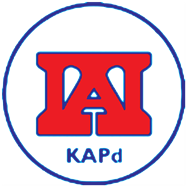Akuntansi Sosial: Analisis Social Return on Investment (SROI) pada Social Bussiness Studi Kasus pada Kelompok Tani Kopi Republik Tani Mandiri
DOI:
https://doi.org/10.26740/akunesa.v13n1.p45-61Keywords:
Social Accounting, Social Return on Investment, Social Economy, Social Business, Community DevelopmentAbstract
This research aims to prove the effectiveness of an social business through a social accounting approach using the Social Return on Investment (SROI) instrument. This research was conducted at the Republik Tani Mandiri (RTM) Coffee Farmers Group, which is a social business in the field of coffee farming. This research approach uses a mixed method research type using an advanced exploratory approach using instruments from Social Return on Investment. The results of the Social Return on Investment (SROI) calculation for this group show a figure of 1:0.20. The results of this research show that every investment made produces a multiple impact. The Republic of Tani Mandiri (RTM) Coffee Farmers Group has succeeded in creating significant social, economic and environmental impacts for various Stakeholders. This indicates that Republik Tani Mandiri (RTM) is efficient in creating added value for Stakeholders. This cannot be separated from the importance of collaboration, support from the government and universities plays an important role in optimizing the implementation and management of Republik Tani Mandiri (RTM) to achieve common goals. It is hoped that these findings will encourage Stakeholders to continue to support similar investments in the future to improve community welfare
References
Bichard, E. (2015). Developing an approach to sustainable return on investment.
Edmonds, E. (2018). Case Studies and Lessons. 47–62. https://doi.org/10.1007/978-3-031-02222-7_5
Emerson, J., & Twersky, F. (1996). New social entrepreneurs: The success, challenge and lessons of non-profit enterprise creation. (No Title).
Habibi, U., & Syamilah, N. (2019). Dampak Penyaluran Dana Ziswaf (Zakat, Infaq, Sedekah Dan Wakaf) Pada Program Pendidikan Stid Mohammad Natsir Berdasarkan Social Return on Investment. Jurnal Bina Ummat: Membina Dan Membentengi Ummat, 2(01), 1–26. https://doi.org/10.38214/jurnalbinaummatstidnatsir.v2i01.38
Herniyati, H., As’ari, H., & Adianto, A. (2022). Implementasi Program Pemberdayaan Fakir Miskin Melalui Kelompok Usaha Bersama (Kube) Di Kecamatan Bengkalis. Jurnal Ilmiah Muqoddimah: Jurnal Ilmu Sosial, Politik, Dan Humaniora, 6(2), 475–483.
Kucur, R. (2023). Kelompok Tani Kopi Republik Tani Mandiri (RTM). https://kopikoetjoer.vercel.app/
Lindawati, L. (2018). Kekuatan Cerita dalam Bisnis Sosial (Sociopreneur is A Storyteller). Jurnal Studi Pemuda, 7(2), 100. https://doi.org/10.22146/studipemudaugm.39643
Masters, R., Anwar, E., Collins, B., Cookson, R., & Capewell, S. (2017). Return on investment of public health interventions: A systematic review. Journal of Epidemiology and Community Health, 71(8), 827–834. https://doi.org/10.1136/jech-2016-208141
Matoati, R., Praningrum, P., Puspita, P., & Rosyadi, I. (2023). Analisis Social Return on Investment (SROI) UMKM Kripik Jamur Tiram Desa Talang Kering melalui Program Tanggung Jawab Sosial (TJSL) PT. PLN Sumbagsel. Jurnal Manajemen Dan Organisasi, 14(1), 89–98.
Nicholls, J., Lawlor, E., Neitzert, E., Goodspeed, T., & Cupitt, S. (2012). A guide to Social Return on Investment: The SROI network. Accounting for Value.
Purwono, F. H., Ulya, A. U., Purnasari, N., & Juniatmoko, R. (2019). Metodologi Penelitian (Kuantitatif, Kualitatif dan Mix Method). Guepedia.
Putra, P. H., & Aligori, A. (2017). Social Return on Investment: A Case Study of Post-Disaster Zakat Empowerment in Indonesia. The 2017 World Zakat Forum Conference, March, 79–94.
Rahardjo, M. (2017). STUDI KASUS DALAM PENELITIAN KUALITATIF: KONSEP DAN PROSEDURNYA. Occupational Medicine, 53(4), 130.
Riahi, A. D. B. (2011). Accounting Theory Edisi 5. Salemba Empat. Jakarta Selatan.
Santoso, M. B., Humaedi, S., Raharjo, S. T., & Mulyono, H. (2021). Transformasi Nilai Sosial Budaya Menjadi Keuntungan Ekonomi: Refleksi Hasil Perhitungan Social Return on Investment (Sroi) Program Siba Batik Kujur. Share : Social Work Journal, 11(1), 31. https://doi.org/10.24198/share.v11i1.33210
Santoso, M. B., Humaedi, S., Raharjo, S. T., & Mulyono, H. (2021). Transformasi Nilai Sosial Budaya Menjadi Keuntungan Ekonomi: Refleksi Hasil Perhitungan Social Return on Investment (SROI) Program Siba Batik Kujur. Share: Social Work Journal, 11(1), 31–40.
Santoso, M. B., Raharjo, S. T., Humaedi, S., & Mulyono, H. (2020). Social Return on Investment (Sroi) Program “Sentra Industri Bukit Asam”(Siba) Dusun Batik Kujur Tanjung Enim. AdBispreneur: Jurnal Pemikiran Dan Penelitian Administrasi Bisnis Dan Kewirausahaan, 5(1), 15–29.
Septasawitri, D., Prabawani, B., & Nugraha, H. S. (2023). Analisis Social Return on Investment (SROI) dalam Penerapan Program Ketahanan Ekonomi dan Pangan Rumah Tangga Desa Dendang. Jurnal Administrasi Bisnis, 12(1), 43–53. https://doi.org/10.14710/jab.v12i1.45914
Silalahi, D. C. G., Santoso, H., & Suliantoro, Y. (2018). Analisis Social Return on Investment Pada Kewirausahaan Sosial: Studi Kasus di Upreneur Aiesec Undip. Industrial Engineering Online Journal, 7(2), 1–19. https://ejournal3.undip.ac.id/index.php/ieoj/article/view/20769
Stein, D., & Valters, C. (2012). Understanding theory of change in international development.
Story, W. (2021). Story of Change. https://vimeo.com/70921687
Yasin, H. (2015). Upaya strategis pemberdayaan ekonomi masyarakat melalui kelompok usaha bersama (KUBE). Jurnal Administrasi Publik, 5(1), 38–42.
Downloads
Published
How to Cite
Issue
Section
 Abstract views: 696
,
Abstract views: 696
, PDF Downloads: 571
PDF Downloads: 571







